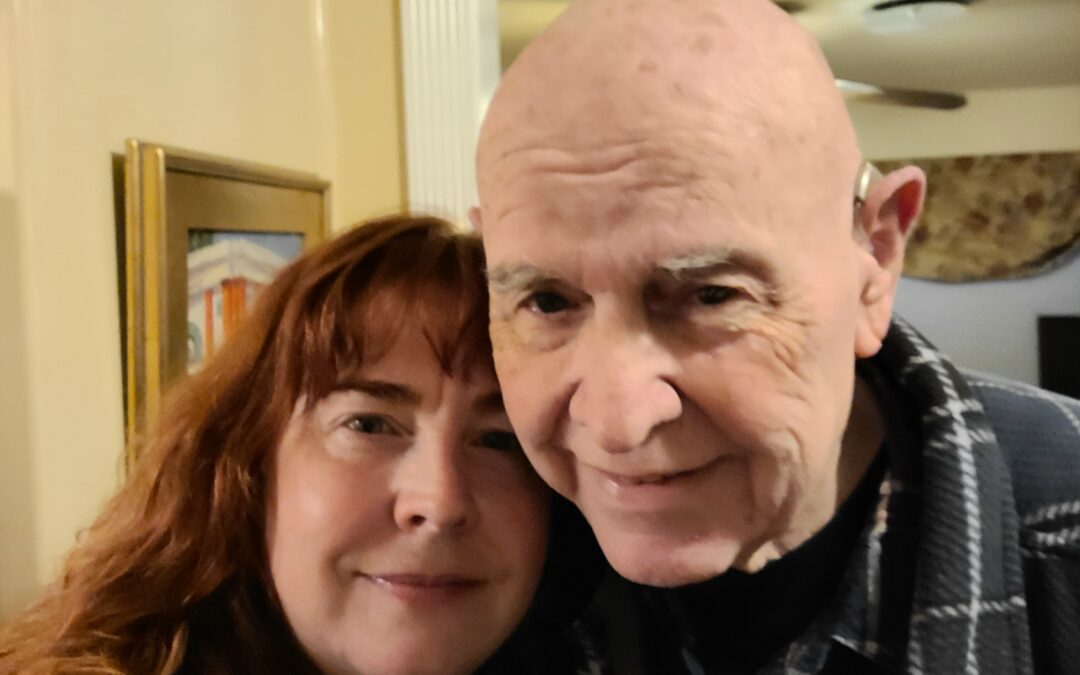I am an owner/entrepreneur of this consulting firm, JB Consulting Systems, specializing in Business, Human Resources, and Marketing. I am the JB of JB Consulting Systems. I also own other businesses in consulting and construction. I have always been able to think on my feet, act quickly to make decisions, problem solve in a crisis, and think strategically. That entrepreneur spirit is in my DNA, I thrive on it, I am motivated by it, and I am excited and thrilled by it. It makes me get out of bed every day until one day on February 5, 2022, it didn’t. After what was a very long 12 months of my health which included some major surgeries and a near-death experience, followed by an amazing three weeks’ vacation in Italy with my husband and son to see my daughter who serves in the Navy in Italy, my world came crashing to a halt. Shortly after our Italy vacation, I traveled to Orlando, Florida for a week-long professional conference as a speaker and in the early hours of February 5th, and less than 24 hours after landing I received a call from one of my four brothers that our father had passed away. Time stood still, and I became a part of the Lost Parent Club; a club in which one does not seek or welcome membership.
I was fortunate to be staying with a close friend, Carol, who was there for me, and I had other friends to help me the next day when I didn’t want to get out of bed. I am also very fortunate to have four brothers and a sister who all worried about me being alone in a hotel room receiving that news. For the next several hours, each sibling called me in between me delivering the news to my husband, my son, and my daughter who were very close to their Grandpa. I woke my daughter who was in Italy and delivered the gut-wrenching news via Messenger. And I finally made the call to my mom before I crawled into bed. I had an outpouring of love and supportive words from so many friends and family, but I couldn’t help having this sense that I was also alone. I was alone in my grief, rudderless without the fearless leader of our family, my rock, my counselor, my teacher, my dad who I loved and respected. He was the person from whom I inherited many of his traits and habits, who loved me unconditionally and was there for me so many times in my life.
The next several days were a blur making arrangements with the American Red Cross to get my daughter home in time for services, and I had to fly home to Washington State, to make arrangements for my husband, son, and daughter to fly to California where my parents live. There are so many arrangements to make for lodging, car rentals, flights, and food. I did all of those things on autopilot while holding the grief at bay for a time. When it hit it was like someone was punching me in the heart and I couldn’t breathe. I numbly went through those first two weeks, finding ways to distract myself by taking care of things with my family and helping my mom. There was and still is a lot to be done and my siblings all have done their part, especially the ones that live close to my parents. I didn’t want to be the “slacker sister”, and I wanted and needed to help.
Then I was back home trying to resume my normal life. My team was amazing. My employees, my business manager, and my business partner just took over and did what needed to be done in my absence and on my return. There was no question. They let me grieve and continue to support me as I take time to visit and help my mom. My son was a huge help and my husband stayed steady making sure things at home were fine and that our beloved dog, Gracie, was taken care of. My daughter stayed in touch. My clients were understanding.
The grief process continues and I was not able to think properly for the last couple of months. All the things that I was good at seemed hard. I have been irrationally angry, endlessly sleepy, unmotivated, and weepy. I’m not the only one in my family who is going through this, and this is nothing compared to what my mom is going through in losing the love of her life with whom she shared the last 61 years of her life. You move through grief; you don’t move on from grief. That person will still be gone and we will feel that loss for the rest of our lives even if not as poignant as it is at first.
My own experience opened up my eyes to the fact that we as employers do not understand the impact that grief has on our employees. We routinely give 3 days of bereavement leave and allow employees to take PTO or vacation time if it is accrued. However, unless it happens to us we don’t understand the needs of our employees when they lose a loved one. We expect them to take the standard 1 or 2 weeks of time off and come back and work as if nothing happened. I had many privileges with a loving and supportive network, but many of our employees don’t have that network. Even if they do, it is ridiculous to think they can come back and slip right back into work as they did before and expect them to “move on”. I have always tried to be a supportive boss in this area and have stressed the importance of family and friends, but I certainly didn’t fully “get it” until now. I want to share some things that I’ve learned with other employers who may be like I was and how you can help your employees.
Three days of bereavement leave doesn’t touch the surface
When it comes to losing an immediate family member or close friend, 3 days of leave can allow your employees time to come up with a plan and make arrangements. It does not give your employees time to grieve. While many businesses can’t afford to pay a lot of time off, I would encourage you to allow the employee to use their sick or vacation time. If they don’t have enough time, allow them to have unpaid job-protected time off. Allow other employees to donate leave days to help.
Grief doesn’t stop after the funeral is over
Your employee will continue to grieve for some time. I am only after 2 months coming out of a fog. Give your employee some grace to move through the grieving process. I needed to work to keep grief from completely overwhelming me while other times I needed to not think about work. Work with your employee and ask them what they need. Make them feel secure that they won’t be fired because their work is subpar to their usual work. Find out if they need additional support with tasks or projects. Many employees feel like their mistakes will be held against them. Ensure them that this will not happen. Know that for some the grief process could be longer than others depending on who they lost: a spouse or partner or sibling could be different than a parent or grandparent as well as how that person passed away.
Provide Mental Health Resources
Your employee may not know about the various resources you may have with your current benefits. We can and should encourage employees to use mental health resources and destigmatize the myth that seeking mental health means there is something wrong with them. Create a document that outlines the various ways in which they can seek mental health support. Health insurance plans cover mental health as if it was any other condition. Offer an Employee Assistance Program (EAP). This is 24/7 support for employees to call and speak with someone. These programs often come with three in-person or virtual sessions with a mental health provider. Can you afford to pay for a mental health provider? Are there other free resources online that you can find for your employee?
Grieving people don’t always ask for help
The “let me know how I can help” statement that we often hear from our friends and employers, doesn’t help. If you are in the grieving process making decisions or coming up with ideas isn’t at the top of your list. It is better to find a few things you can offer such as taking a collection and providing an e-gift card for Door Dash, Uber Eats, Grub Hub, or some other food delivery system. Make a list of three ideas of how you can help and offer the employee a choice or let them tell you something else that will be more helpful. Sending flowers to people is an option but maybe send a plant the employee can plant in their yard as a remembrance or make a donation to their selected charity.
Grief is unpredictable
Grief doesn’t end with a funeral. That is just the formality of going through the motions. The hard work starts after your employee gets through the busywork. There will be times when your employee may exhibit what appears to be unprovoked anger or sadness or be uncommonly sarcastic, snarky, or critical of others, or they may seem to lose their place when speaking, take longer to get projects done, seem forgetful, or throw themselves into work to the point of exhaustion. While you still have to deal with performance issues, having some empathy when working through these situations will go a long way in retaining that employee and helping them move through the grieving.
The loss of a loved one may lead to more personal responsibility and financial hardships
When an employee loses a loved one there may be other loved ones that must be helped and supported, for instance, one parent is gone and the other one needs assistance. A loss of a spouse may mean more tasks, financial responsibilities, or financial difficulties. Your employee may need more time off to deal with the various responsibilities with which they are now left. Allowing your employees to work variable or flexible shifts or taking additional unpaid time off to work through their new reality will be vital in helping them get to a place where they can once again focus on their work.
Employees need our help during this process. Taking the time now to review the support and network you have available for your employees will go a long way in being prepared for that inevitable day. Showing care, compassion, and understanding to our employees is not a weakness, it is one of our greatest strengths as employers. If you would like to discuss what options may work best for your business, Contact Us.



